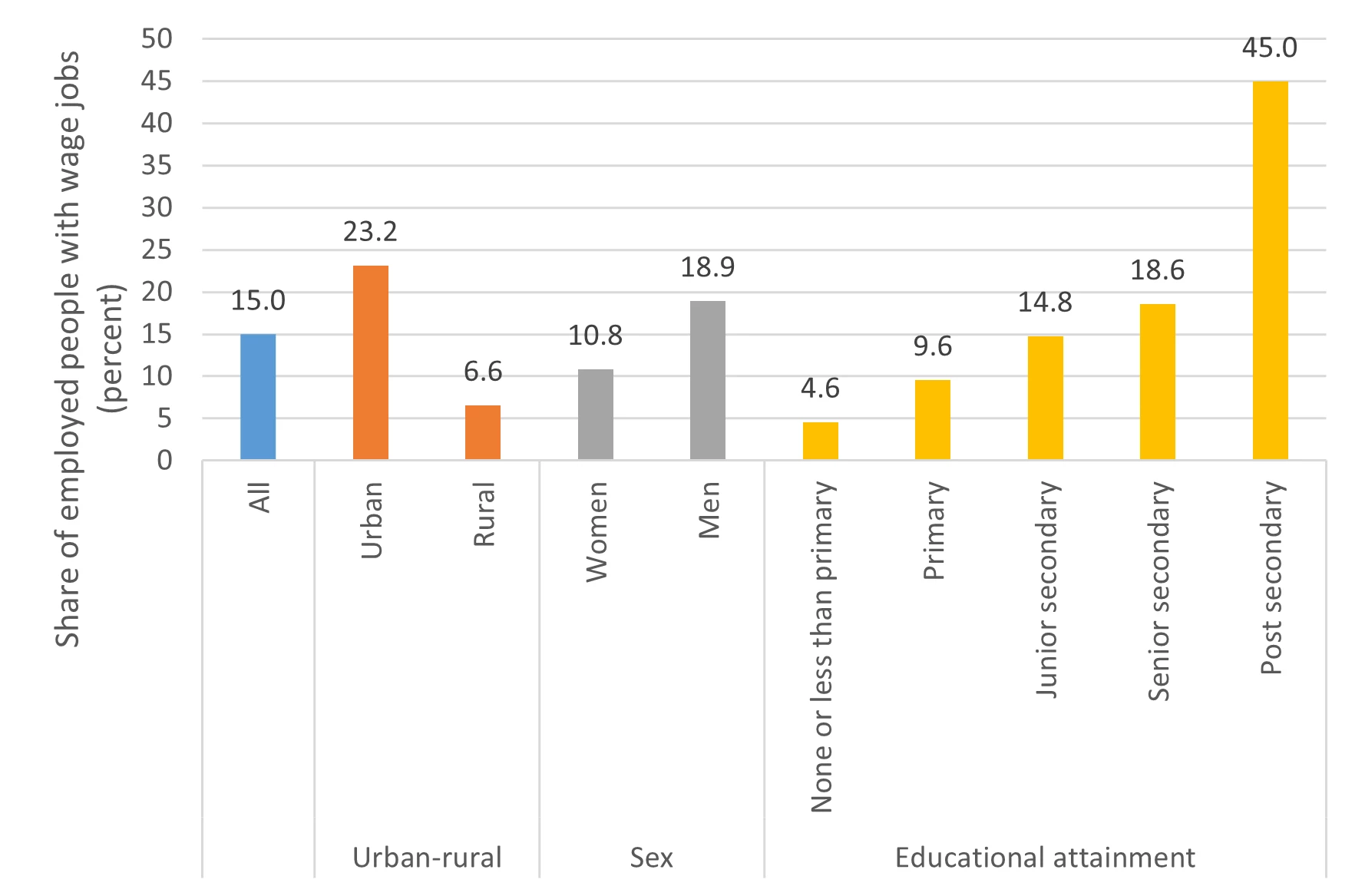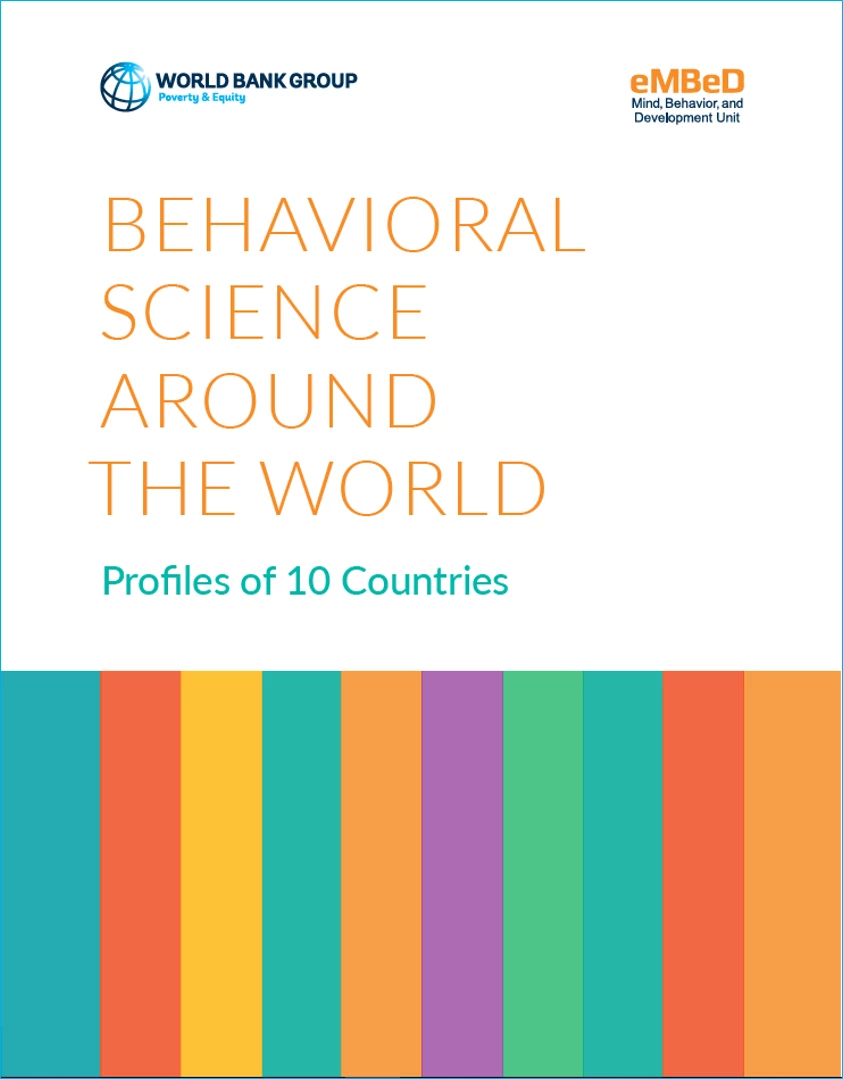It is impressive to see that there are more than 202 public entities applying behavioral insights to their policies today. In 2015, the World Bank became one such entity that began to explore the relevance and potential benefit of behavioral insights to development policy with the publication of our World Development Report on Mind, Society, and Behavior. Since then, we have joined these other countries and development agencies in establishing the Mind, Behavior, and Development Unit (eMBeD), a team to support our projects and guide government entities on how best to integrate behavioral science in their policy work.
eMBeD has worked on over 85 projects, including improving student outcomes at low cost in Peru, Indonesia, and South Africa, increasing rural women’s economic participation in Mexico, and increasing tax compliance – and sustainably changing policy maker behavior – in Guatemala, Poland, and Kosovo.
Our work is consistently inspired by our colleagues in governments across the world, and the successes they began to share. Being able to learn from the what has – and hasn’t – worked for other countries at different levels of government, in different thematic areas, and across different populations, has been essential for informing our own work. We believe the collaboration and knowledge sharing between different behavioral insights teams and experts has allowed us to grow and contribute, not just in replicating existing interventions, but also through designing and testing new solutions to persistent policy issues such as social instability, gender-based violence, and breaking the poverty trap cycle.
It is in that spirit that we compiled “Behavioral Science Around the World: Profiles of 10 Countries” to document the experience of the first 10 countries to invest in behavioral science.
Key Takeaways:
Tax compliance interventions are a good way to start. Almost all countries are conducting interventions to increase tax compliance through simplification of forms, and/or reminders and message framing. These are great examples of low-cost interventions that can yield high returns, and build buy-in with policy makers before taking on stickier issues. While most of this work has been pioneered in a developed setting, the Bank has seen sustainable impacts in Guatemala, Kosovo, and Poland, to name a few.
Improving user touchpoints and service deliveries are low-cost, efficient, and can strengthen the social contract. Many units are focusing on reducing cognitive overload by improving user touchpoints in their program and service deliveries. These vary from incentivizing energy efficiency behaviors, to increasing preventative healthcare, reducing debt, expanding consumer protection and growing take-up of government programs. Australia has improved training delivery of its vocational education to help students complete their training, whereas Singapore supported job seekers in their quest to find jobs by divvying up tasks, commitment devices to increase follow-through, and environmental priming (increase from 32% to 49%). These types of solutions not only improve lives but they also strengthen the social contract between the government and its citizens, and increase trust.
Behavioral science offers more than interventions – it offers a new lens to design better policies and programs. We are witnessing the expanded impact of behavioral science not just to nudge certain behaviors, but to improve how we approach policy and program design to be more realistic, efficient, and effective. For example, in the Netherlands, the Ministry of Infrastructure and Water Management applied behavioral insights in the design of a new policy program “Optimising use” to improve mobility, use of public transportation, and encourage flexible working. Behaviorally informed projects were twice as effective than the other projects.
Behavioral insights can promote pro-social behaviors. In today’s divisive world, increasing empathy and pro-social behaviors can be instrumental in ensuring safe, cohesive, and productive societies, as well as governments. Countries featured in the report have leveraged behavioral science to increase empathy, donations, as well as civility. In Canada, units are applying behavioral science principles to increase contributions to fundraising initiatives. Australia, Canada, and Singapore have also designed interventions to increase organ donations.
Behavioral science for public policy is the future of government. At the World Bank, we believe that this is just a start and we are yet to realize the full potential of behavioral science . It is not enough to have a behavioral insights team within the institutions. There’s a minimum behavioral literacy required to ensure that policy makers and implementers are not only aware of the tools available to design and implement better projects, but also to learn about their own biases and mindsets that could be limiting them and their programs. Most countries are conducting learning events and training throughout their institutions. These vary from bootcamps, to credential programs, and workshops. With greater awareness and skills, behavioral science can change how we think about development policies, programs, and solutions.
As we continue to witness how behavioral science continues to grow and mainstream within these countries, policy makers around the world have taken notice, and we hope our next edition of this report can represent the different ways this field is evolving and growing.






Join the Conversation